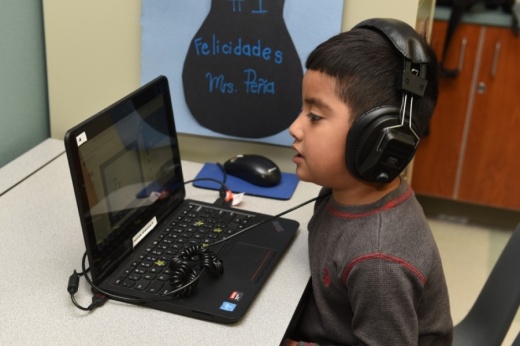Superintendent Mark Henry said district officials continue to prepare for both in-person and virtual instruction options in 2020-21.
“When you’re going through an unprecedented time, you do unprecedented things,” Henry said during the meeting. “We are going to have the two options available once school rolls around—for in-person as dictated by the state at this time, but also we want to make sure that we have that virtual option ... available to parents and students that choose to go that direction.”
CFISD administrators have developed the CFISD Learning Together Everywhere 1:1 program, designed to provide equitable technology access to all pre-K through 12th grade students. Officials said $40 million of the purchase would come from bond funds, and $4 million would come from the district’s general fund.
Officials said parents will receive a survey later this month asking whether they plan to enroll their children in face-to-face classes or have their children learn remotely in 2020-21. They will have until Aug. 10 to make a final decision before the school year kicks off on Aug. 24.
Chief Academic Officer Linda Macias said devices will be distributed based on availability and need as they will not all arrive to the district by the time school starts.
However, once all devices are in, even students who are taking in-person classes will have a device they can bring back and forth with them from school to their homes. This will enable all students to attend school virtually from home in the case they need to quarantine or if campuses are forced to close due to COVID-19, Macias said.
“When we start school on Aug. 24 ... and if in a month, the state decides that we need to shut school down, our students will not miss a beat,” she said.
Macias said the district will be using Schoology in 2020-21, which will replace the Learning at Home program implemented in the spring and include live instruction from teachers. Attendance will be taken regardless of instruction method for each class period as mandated by the state.
Karen Fuller, CFISD’s director of infrastructure, communications and networks, said each student will receive a Chromebook device equipped with a built-in camera and microphone in addition to a snap-on case designed to protect devices from damage.
Chromebooks were chosen because they are user friendly, low cost, have a long battery life, and have increased stability and security, Fuller said.
CFISD currently has about 40,000 Chromebooks—about 10,000 of which were already distributed to students taking summer school courses—and is looking to purchase another 75,000 devices, Fuller said. Ultimately, she said the district’s goal is to distribute devices to all students regardless of need by the end of the fall semester.
Devices will be managed through the district’s current inventory system and include location tracking software and internet filtering. District technicians will be available when repairs are needed, officials said.
For students who do not have internet access at home, Fuller said the district is also looking to purchase 4G LTE broadband wireless hot spots, which would provide students with unlimited data on their CFISD device.
More information will be coming soon to www.cfisd.net/lte.





